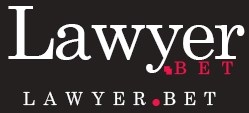Have you ever come across the term “estate trust” and found yourself scratching your head in confusion? Don’t worry, you’re not alone. In this article, we will delve into the world of estate trusts and break down exactly what they are and how they work. Whether you’re a seasoned investor or a curious novice, get ready to unravel the mystery behind estate trusts.
Understanding Estate Trusts: An In-Depth Overview
An estate trust, also known as a living trust, is a legal arrangement where a person, known as the grantor, places their assets into a trust during their lifetime. The assets are then managed by a trustee for the benefit of a designated beneficiary or beneficiaries.
Key components of an estate trust:
- The grantor: the person who creates the trust and transfers assets into it.
- The trustee: the person or entity responsible for managing the assets in the trust.
- The beneficiary: the person or entity who will benefit from the trust assets.
- The trust document: the legal document that outlines how the trust will be managed and distributed.
An estate trust can help individuals avoid probate, maintain privacy, and provide for the management of assets in the event of incapacity. It can also offer tax benefits and flexibility in how assets are distributed to beneficiaries.
Key Components of Estate Trusts You Need to Know
Estate trusts are legal entities that can be a crucial part of your estate planning strategy. They offer several advantages such as privacy, control, and flexibility. Understanding the key components of estate trusts can help you make informed decisions when planning for your future.
Key Components:
- Grantor: The person who creates the trust and transfers assets into it.
- Trustee: The individual or institution responsible for managing the trust assets according to the grantor’s wishes.
- Beneficiaries: The individuals or entities that will benefit from the trust assets.
- Trust Property: The assets, such as real estate, investments, or personal property, held in the trust.
By understanding these key components, you can work with your estate planning attorney to create a trust that aligns with your goals and wishes. Whether you are looking to protect your assets, minimize estate taxes, or ensure a smooth transfer of wealth to your loved ones, an estate trust can be a valuable tool in achieving your objectives.
Benefits of Establishing an Estate Trust for Your Assets
An estate trust is a legal arrangement that allows a person to transfer their assets to a trustee, who will hold and manage those assets for the benefit of the beneficiaries named in the trust. There are several benefits to establishing an estate trust for your assets:
1. Asset Protection: By placing your assets in a trust, you can protect them from creditors and legal disputes. This can ensure that your assets are preserved for your intended beneficiaries.
2. Avoiding Probate: Assets held in a trust are typically not subject to probate, which can save time and money for your loved ones after your passing. This means that your assets can be distributed to your beneficiaries more quickly and efficiently.
3. Privacy: Unlike a will, a trust is a private document that does not become part of the public record. This can help maintain the confidentiality of your estate and protect your beneficiaries from unwanted attention.
Expert Tips for Setting Up and Managing an Estate Trust
An estate trust is a legal entity set up to hold assets for the benefit of individuals or organizations. It is managed by a trustee who has a fiduciary duty to act in the best interests of the trust beneficiaries. Setting up and managing an estate trust can be a complex process, but with the right guidance and expertise, it can provide numerous benefits for estate planning and asset protection.
When setting up an estate trust, it is important to consider the following expert tips:
- Choose the right trustee: Selecting a trustworthy and capable trustee is crucial for the successful management of the estate trust.
- Define the trust objectives: Clearly outline the purpose and goals of the trust to ensure that it aligns with your estate planning needs.
- Review and update regularly: Regularly review and update the trust documents to reflect any changes in your financial or personal circumstances.
| Benefit | Description |
|---|---|
| Asset Protection | Assets held in a trust are typically protected from creditors and legal claims. |
| Estate Tax Savings | Properly structured trusts can help minimize estate taxes upon transfer of assets. |
| Privacy | Trusts are private documents that do not go through probate, offering privacy to beneficiaries. |
The Way Forward
In conclusion, an estate trust is a powerful tool that can help individuals protect and manage their assets both during their lifetime and after their passing. By creating a trust, individuals can ensure that their wishes are carried out in a timely and efficient manner, all while providing for the future financial security of their loved ones. Whether you’re looking to safeguard your wealth, minimize taxes, or simply provide for your heirs in the most effective way possible, an estate trust may be the solution you’ve been searching for. Consider speaking with a trusted financial advisor or estate planning attorney to explore whether a trust is right for you and your family. Remember, when it comes to planning for the future, it’s never too early to start.





